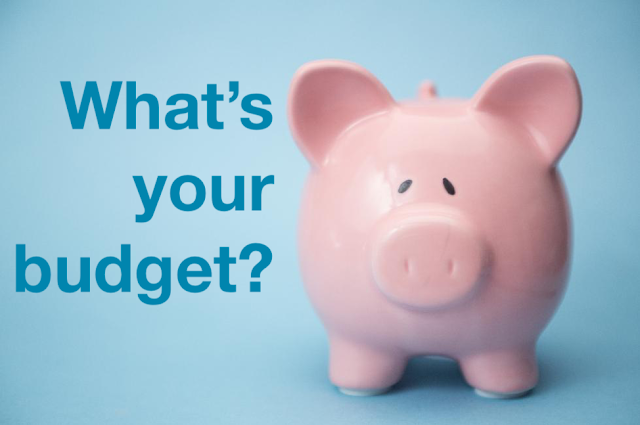That fear-inducing question: What's your budget?
Some months ago, I met with a networking group and we got on the topic of the inherent challenges of writing quotations for clients. One of the things that makes this process difficult is the awkward and sometimes fear-inducing question we ask: What's your budget?
Why do consultants ask you about money?
Let's begin with you.
You need some work done so, you call or email a consultant or two or three to get quotations for services.
"How much it will cost to do "x?"
Sounds pretty straightforward, doesn't it? Yet the truth is, I can't always answer that seemingly simple question in a direct way because (and here's where a bit of scepticism may enter on your part) I want to be sure that what you're asking for will get you what you want.
I pepper you with questions like:
- What do you want to achieve?
- How much time do you have to achieve it?
- Who is your audience?
- Who is your competition?
- Is everyone on board with the goal?
- And finally, the killer question: What's your budget?
There are many more questions to be answered than those I've listed here, but it's the last question that makes potential clients squirm and understandably so. Generally, we are uneasy talking about money even with our best friends. Then there's a fear of being taken advantage of; many believe that if they state their budget up front, the consultant will inflate the cost of service to fit the budget.
I'm sure there are consultants who do this as there are unscrupulous actors in any line of work.
In the vast majority, however, are the consultants want to do the most they can within your means. From a practical perspective, we want you to come back to us for your next project and that isn't likely to happen if you believe we've tried to pull one over on you.
Back to your budget. There is no point in preparing a quotation for services that cost $20,000 if you have $2,000 to spend and the opposite is also true.
A high quote against a lower budget may scare you off, as it may cause you to believe that you can't afford to have anything done. A low quote against a higher budget can be equally off-putting as your project won't get the focus that your budget allows.
Sure, $20,000 will buy a lot more than $2,000 and will get different results, but that doesn't mean $2,000 won't get any results or that the work isn't worth doing. A smaller budget may simply mean that the work may be done in stages or may focus on a particular need instead of tackling many things at once.
When we know your budget, we can be more useful to you.
It really is as simple as that.
Next time you're asked for your budget, don't worry about what your budget is. Together, we'll figure out the best use of the funds you have. It's a productive conversation to have to get you the best value for your money.
I'd love to hear your thoughts about the budget conversation. Please chime in.
Cheers!
Colleen




Comments
Post a Comment